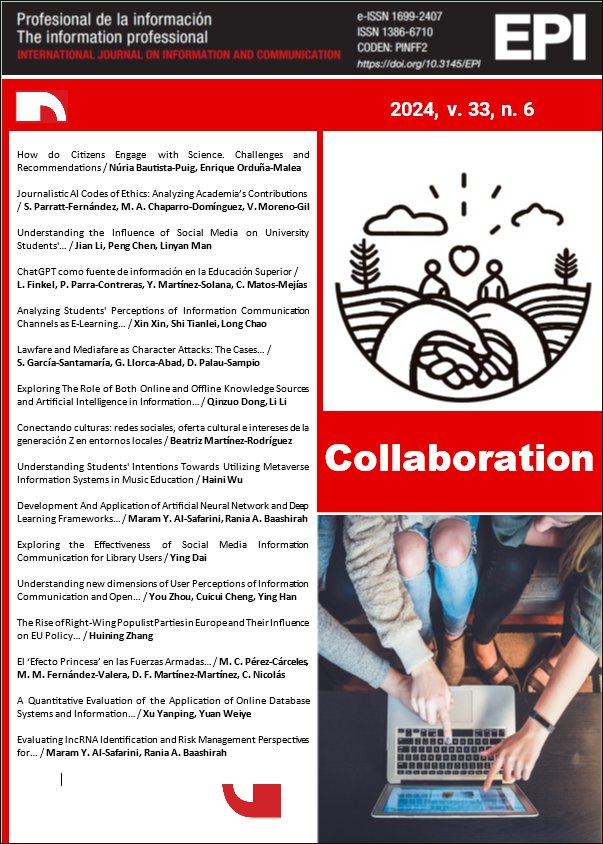Journalistic AI Codes of Ethics: Analyzing Academia’s Contributions to their Development and Improvement
DOI:
https://doi.org/10.3145/epi.2024.0602Resumen
Journalists are expected to make an ethical use of artificial intelligence (AI) systems in their editorial work in order to maintain journalistic principles while adapting to AI. The growing academic interest in the journalistic use of AI and its ethical limits results in research of potential value for newsrooms. The first purpose of this study is to outline emerging ethical codes and guidelines on the use of AI in newsrooms developed and made public by news organizations worldwide. Secondly, it aims at systematizing proposals and recommendations from academic sources that could potentially contribute to develop new ethical codes and guidelines on the use of AI in newsrooms and to improve the existing ones. The third purpose is to assess to what extent such proposals and recommendations appear in ethical codes and guidelines. Ultimately, this allows us to find out whether academic contributions could be better exploited by media practitioners. Documents from 84 media organizations of Europe, America, and Asia, and eight major proposals or recommendations from twelve academic papers were identified and analyzed. Results show that, at present, 40 ethical codes or recommendations around the world are accessible to the public. Proposals coming from academic sources are related to accuracy and credibility, accessibility, relevant contents, diversity, transparency and accountability, data and privacy, human factor, and interdisciplinary teams. One significant finding is that the proposals have a limited presence in media organizations' ethical codes on AI and the ones with greater presence focus on the importance of the human factor, both in editorial decision-making and in the creative part of the journalistic process. Ultimately, the results highlight the need to discuss the professional-academic divide.
Descargas
Downloads
Publicado
Número
Sección
License
Copyright (c) 2025 Profesional de la información

This work is licensed under a Creative Commons Attribution 4.0 International License.
Condiciones de difusión de los artículos una vez son publicados
Los autores pueden publicitar libremente sus artículos en webs, redes sociales y repositorios
Deberán respetarse sin embargo, las siguientes condiciones:
- Solo deberá hacerse pública la versión editorial. Rogamos que no se publiquen preprints, postprints o pruebas de imprenta.
- Junto con esa copia ha de incluirse una mención específica de la publicación en la que ha aparecido el texto, añadiendo además un enlace clicable a la URL: http://revista.profesionaldelainformacion.com
La revista Profesional de la información ofrece los artículos en acceso abierto con una licencia Creative Commons BY.


